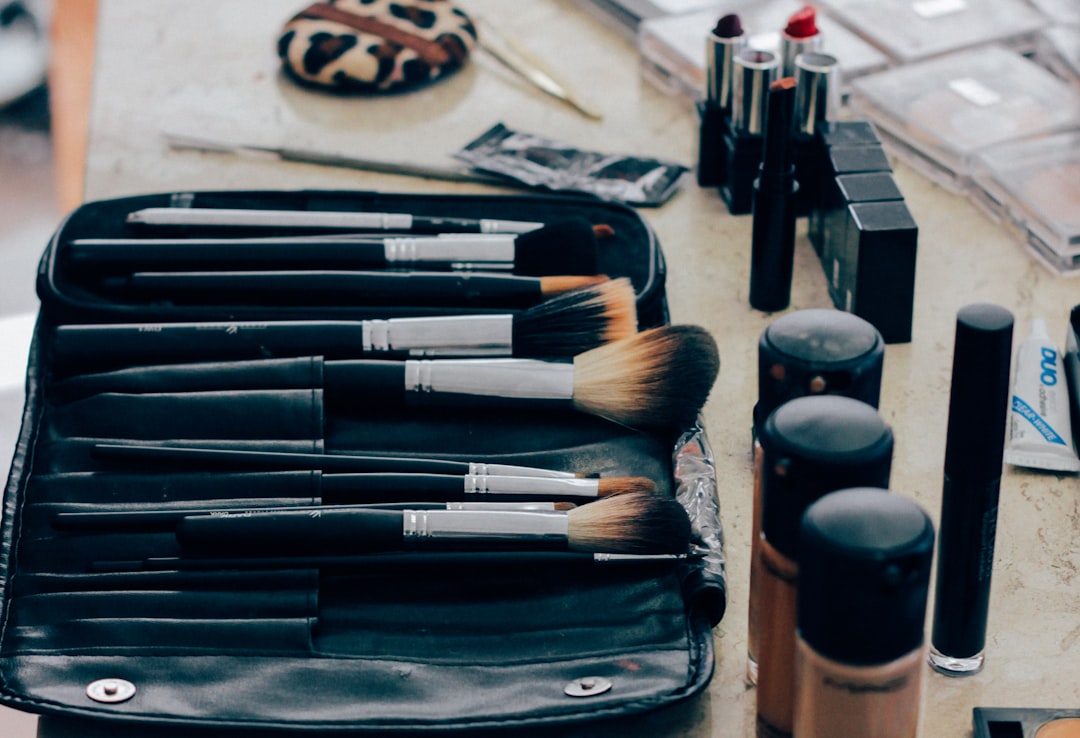Introduction
Having good skin is important for men and women alike. Having a good skincare routine helps you maintain a healthy complexion and keep your skin looking its best. So, if you’re a man who’s just getting started with skincare, this guide is for you. We’ll discuss the basics of men’s skincare and provide an overview of the fundamental steps to creating your own routine.
Understanding Your Skin Type
Before you start creating your routine, it’s important to understand your skin type. Everyone’s skin is different and has its own unique needs. Knowing your skin type will help you determine which products and ingredients will work best for you. The most common skin types are:
• Normal: Normal skin is neither too dry nor too oily. It tends to be balanced and typically isn’t prone to breakouts.
• Oily: Oily skin tends to be shiny, thick, and prone to breakouts.
• Dry: Dry skin is characterized by flakiness, tightness, and dullness.
• Sensitive: Sensitive skin is easily irritated and prone to redness, itching, and rashes.
Choosing the Right Products
Once you’ve identified your skin type, it’s time to choose the right products for you. When selecting products, look for ones that are tailored to your skin type and contain natural ingredients. Avoid products that contain harsh chemicals or fragrances, as these can be irritating and cause breakouts.
It’s also important to pick products with the right ingredients. For men with normal or oily skin, look for products that contain salicylic acid, glycolic acid, or retinol to help reduce breakouts. For men with dry skin, look for products that contain hydrating ingredients like hyaluronic acid, glycerin, or ceramides.
Creating Your Routine
Now that you’ve chosen the right products, it’s time to create your routine. A good skincare routine should include the following steps:
• Cleanse: Cleansing is essential for removing dirt, oil, and impurities from the skin. Use a gentle cleanser twice a day, morning and night.
• Tone: Toning helps balance the skin’s pH levels and can help reduce the appearance of pores. Use a toner after cleansing.
• Treatment: Treatments are used to target specific skin concerns. You can use treatments such as retinol, exfoliants, masks, and serums.
• Moisturize: Moisturizing helps keep the skin hydrated and can help reduce the appearance of fine lines and wrinkles. Use a moisturizer day and night.
• Sunscreen: Sunscreen helps protect the skin from the sun’s harmful UV rays and should be applied every day.
Conclusion
Creating a skincare routine doesn’t have to be difficult or time-consuming. With the right products and a few simple steps, you can have healthy, glowing skin. Start by understanding your skin type and choosing the right products for you, then create a routine that fits your lifestyle and needs. With the right routine, you can keep your skin looking and feeling its best.1. Cleanse: Choose a gentle cleanser that is suited to your skin type.
2. Exfoliate: Use a gentle exfoliator once or twice a week to slough away dead skin cells and promote cell turnover.
3. Tone: Use a toner to balance your skin’s pH and help remove any remaining dirt and oil.
4. Serum: Apply a serum that contains antioxidants or ingredients that target your skin concerns.
5. Moisturize: Use a moisturizer suited to your skin type to keep your skin hydrated and healthy.
6. SPF: Apply a broad-spectrum SPF 30 or higher every day to protect your skin from the sun’s harmful UVA and UVB rays.
7. Treat: Use treatments such as masks or spot treatments to target specific skin concerns.
8. Take Care: Make sure to get plenty of sleep, drink enough water, and eat a healthy, balanced diet.9. Exercise: Exercise regularly to maintain physical health and mental well-being. Find activities that you enjoy, such as walking, running, biking, swimming, or yoga.
10. Avoid Unhealthy Habits: Avoid smoking, drinking alcohol, and using drugs. These activities can have serious negative consequences on your health.Engage in Healthy Habits: Exercise regularly, eat nutritious foods, get enough sleep, maintain a healthy weight, and practice stress management techniques such as yoga and meditation. These habits will help you stay healthy and improve your overall well-being.Avoid Unhealthy Habits: Avoid smoking, excessive alcohol use, using drugs, and participating in risky behaviors such as unprotected sex. These activities can lead to physical and mental health problems such as addiction, depression, and chronic diseases.
Practice Self-Care: Make time for yourself to relax and enjoy activities that bring you joy. This will help you
Photo by Manu Camargo on Unsplash
remain physically and mentally healthy.Set Boundaries: It is important to set boundaries with your time and energy. This will help you stay focused and organized, while also allowing you to take care of yourself.
Be Mindful: Be mindful of how you’re feeling and take note of any changes. This will help you recognize when you need to take a break or adjust your routine.
Seek Support: Don’t be afraid to reach out for help when you need it. There are many support systems available to help you manage stress and stay healthy.Take Breaks: Regularly taking breaks throughout the day to relax and unwind can help reduce stress and improve your overall wellbeing.
Exercise: Regular physical activity can help reduce stress and improve your overall wellbeing.
Set Boundaries: Setting boundaries around your time and energy can help you prioritize your tasks and manage your stress levels.
Get Enough Sleep: Getting enough sleep each night can help your body recharge and cope with stress more effectively.
Eat Healthy: Eating a healthy diet can help reduce stress and improve your overall wellbeing.
Identify Your Stressors: Identify the things that are causing you stress and look for ways to manage or reduce them.
Learn Relaxation Techniques: Learning relaxation techniques such as meditation, deep breathing, and yoga can help you manage stress more effectively.Talk to Someone: Talking to a friend, family member, or mental health professional can help you manage stress and find healthy ways to cope.Be Kind to Yourself: Remember to be kind to yourself and practice self-care. Taking time to do things that make you happy and give you joy can help reduce stress.Take Time for Yourself: Make sure to take time for yourself each day to relax and unwind. Doing activities such as reading, listening to music, or taking a walk can help reduce stress levels.Exercise: Exercise is one of the best ways to relieve stress and boost your overall mental health. Studies have shown that regular exercise can help reduce stress and anxiety.
Mindfulness: Practicing mindfulness can help you stay present in the moment, rather than worrying about the future or ruminating on the past. It can help you focus on the present and be more aware of your thoughts and feelings.
Spend Time With Friends: Spending time with friends can help reduce stress by providing a sense of social support and allowing you to express your thoughts and feelings.
Get Enough Sleep: Getting enough sleep is essential for reducing stress. Sleep allows your body and mind to rest and recharge, so make sure to get enough sleep each night.Exercise: Exercise is a great way to reduce stress. It releases endorphins which can improve your mood and help to reduce stress hormones.
Meditate: Meditation can help to reduce stress by allowing you to focus on the present moment and become more aware of your thoughts and feelings.
Create a Stress Journal: Writing down your thoughts and feelings in a stress journal can help to reduce stress as it allows you to identify patterns and better understand the sources of your stress.
Eat Well: Eating a balanced diet can help to reduce stress by providing your body with the nutrients it needs to stay healthy and energized.
Take Time for Yourself: Taking time for yourself is important for reducing stress. Make sure to take breaks throughout the day and give yourself time to relax and recharge.Exercise: Exercise can help to reduce stress by releasing endorphins, which can improve your mood and reduce stress hormones.Get Enough Sleep: Getting enough sleep is essential for reducing stress. Aim for 7-8 hours of sleep each night to help your body and mind recover and be ready for the day ahead.Meditate: Practicing meditation or mindfulness can help reduce stress and promote relaxation.
Talk to Friends and Family: Talking to friends and family can help you to gain perspective and share your feelings, which can provide an outlet for stress.
Take Time for Yourself: Take time out of your day to do something you enjoy. Whether it’s reading a book, listening to music, taking a bath, or going for a walk, taking time to do something that you enjoy can help reduce stress.Exercise: Regular physical activity can help to reduce stress levels and improve your mood.
Eat Healthily: Eating a balanced diet can help to reduce stress levels and give your body the fuel it needs to cope with stress.
Reduce Caffeine and Alcohol Intake: Too much caffeine and alcohol can increase feelings of stress. Try




